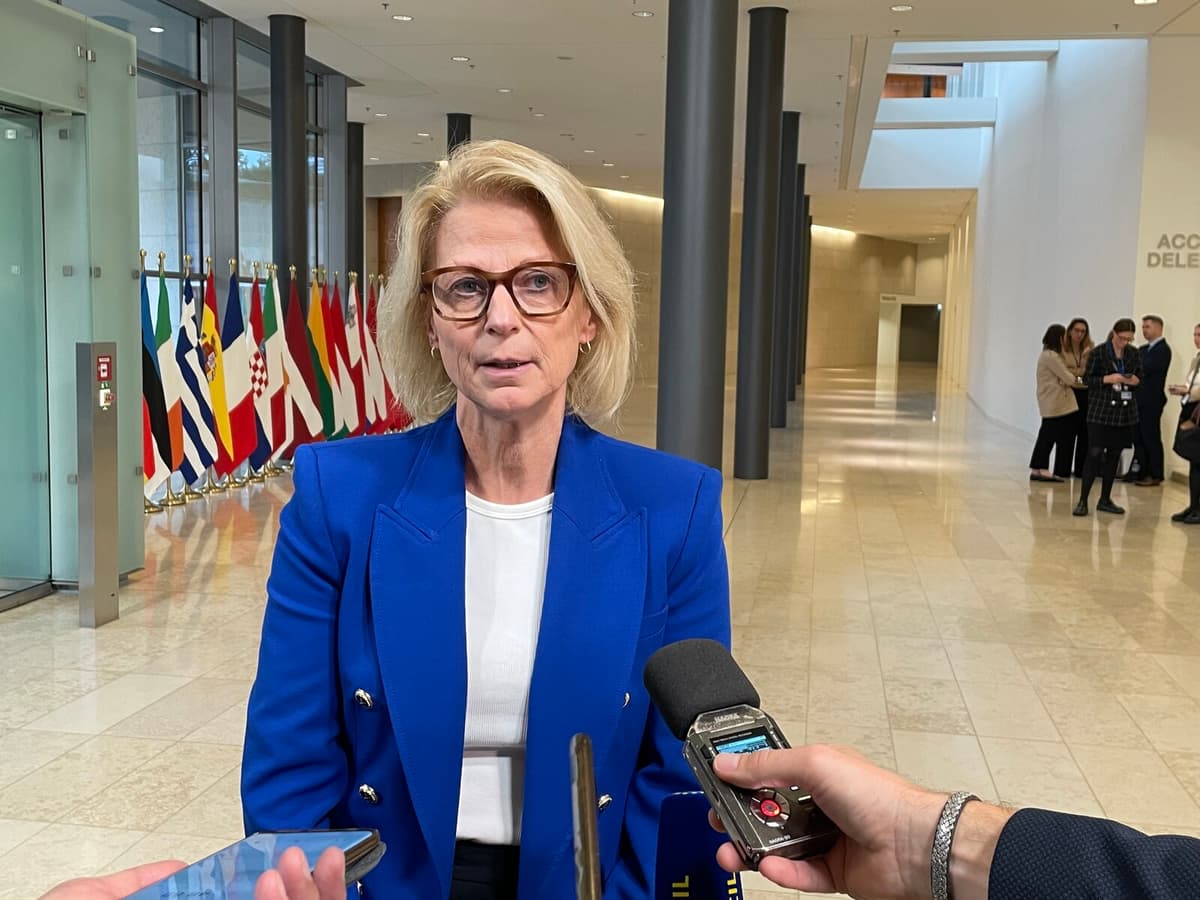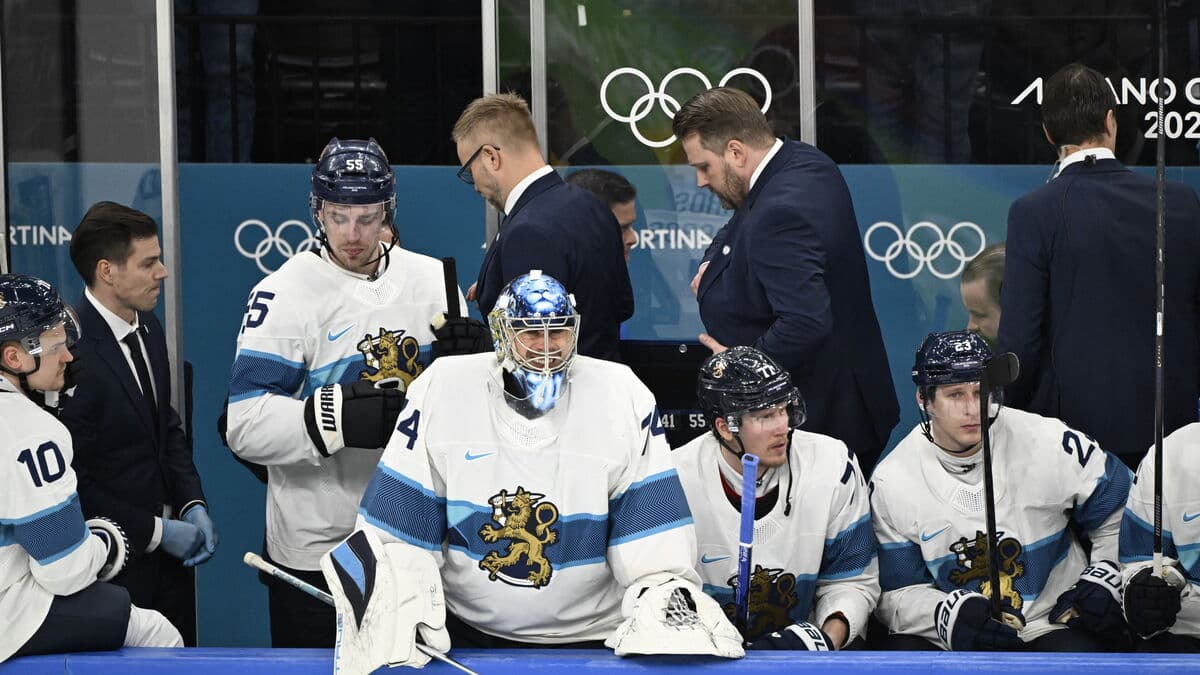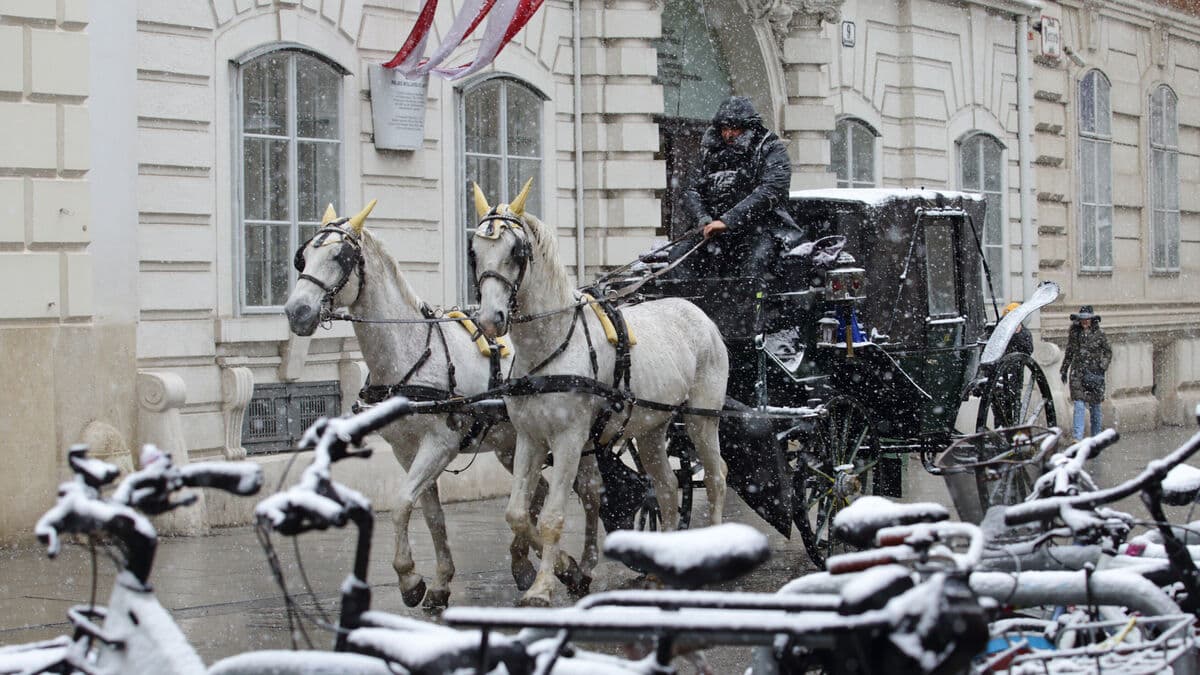The President of the EU Commission, Ursula von der Leyen, promised three weeks ago to provide at least SEK 400 billion in new support to Ukraine. The money will be given as a loan, but with the yield on frozen Russian state funds as collateral.
Among EU member states, there is sufficient consensus to approve the main parts of the proposal, possibly as early as October.
The first two parts, which are the most important, we are now getting in place, and it is incredibly important so that Ukraine can get all the money we have decided they should have, says Elisabeth Svantesson on her way into a discussion on the issue at Tuesday's EU finance ministers' meeting in Luxembourg.
"Unfortunate"
The problem is that another part of the proposal requires total consensus among member states – and Hungary, which is critical of Ukraine, is holding out, despite being the EU's rotating presidency and should be neutral.
I think it's unfortunate. It's problematic that they're doing it. Throughout this entire journey, during the presidency, they haven't shown responsibility and handled the situation as a presidency should, says Svantesson.
What Hungary is blocking is a proposal to freeze Russian state assets in the EU for three years at a time, rather than just six months at a time. This way, the EU will be more long-term secure in getting the money for the Ukraine loan – and it's also something the US is demanding in order to contribute with money.
There's a risk that if we don't extend (the freezing period) and the US were to opt out, it might end up with the EU having to cough up more money. That's something Hungary should also think about, says Svantesson.
Waiting for Trump?
The Finance Minister fears that Hungary wants to drag out the issue until after the US presidential election – in the hope that a victory for Donald Trump will change the situation.
That's absolutely possible. But then it's a matter of putting even harder pressure on Hungary. We've done that before in different issues where they've had to back down in the end. This is also an issue where they need to back down, because Ukraine needs this money and we others are fully in agreement about it, says Elisabeth Svantesson.
The President of the EU Commission, Ursula von der Leyen, announced on September 20 a proposal for EUR 35 billion in quick loans to Ukraine. The money will be paid back in the long term through the yield on the Russian central bank billions frozen on European accounts – a total of around EUR 280 billion.
The billion-dollar loan is the EU's part of a previously given promise together with the G7 countries in June of EUR 50 billion to Ukraine. Originally, it was intended that the EU and the US would each cover roughly equal parts of the loan, which has however been stuck due to US demands for additional European sanctions, which have not yet been implemented.






